
Lester William Polsfuss, known as Les Paul, was an American jazz, country, and blues guitarist, songwriter, luthier, and inventor. He was one of the pioneers of the solid-body electric guitar, and his prototype, called the Log, served as inspiration for the Gibson Les Paul. Paul taught himself how to play guitar, and while he is mainly known for jazz and popular music, he had an early career in country music. In the 1950s, he and his wife, singer and guitarist Mary Ford, recorded numerous records, selling millions of copies.

Mary Ford was an American vocalist and guitarist, comprising half of the husband-and-wife musical team Les Paul and Mary Ford. Between 1950 and 1954, the couple had 16 top-ten hits, including "How High the Moon" and "Vaya con Dios", which were number one hits on the Billboard charts. In 1951 alone they sold six million records. With Paul, Ford became one of the early practitioners of multi-tracking.

Les Paul and Mary Ford were a popular 1950s husband-and-wife musical duo who performed and recorded during 1945–1963. They both sang and played guitars.
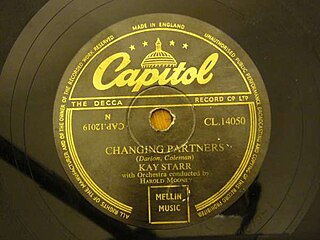
"Changing Partners" is a pop song with music by Larry Coleman and lyrics by Joe Darion, published in 1953. The best-known recording was made by Patti Page. It was also recorded the same year by Dinah Shore, Kay Starr and Bing Crosby.
"Pretend" is a popular song, written in 1952 by Dan Belloc, Lew Douglas, Cliff Parman and Frank Levere.
"Hummingbird" is a popular song written by Don Robertson released in 1955. The best-known version of the song was the recording by Les Paul and Mary Ford. This version reached #7 on the Billboard chart. It was also recorded at about the same time by Frankie Laine and by The Chordettes. On the Cash Box magazine Best-Selling Record chart, where all versions were combined, the song reached #6 in 1955.

"Vaya con Dios " is a popular song written by Larry Russell, Inez James, and Buddy Pepper, and first recorded by Anita O'Day in December 1952. Les Paul and Mary Ford had a No. 1 recording of the song in 1953. Members of the Western Writers of America chose it as one of the Top 100 Western songs of all time.

"Leaving on a Jet Plane" is a song written and recorded by singer-songwriter John Denver in 1966, originally included on his debut demo recording John Denver Sings as "Babe I Hate To Go". He made several copies and gave them out as presents for Christmas of that year. Denver's then producer Milt Okun convinced him to change the title and was renamed "Leaving on a Jet Plane" in 1967.

"Mama Weer All Crazee Now" is a song by the British rock band Slade, released in 1972 as the lead single from their third studio album Slayed?. It was written by lead vocalist Noddy Holder and bassist Jim Lea, and produced by Chas Chandler. It reached No. 1 in the UK, giving the band their third number one single, and remained in the charts for ten weeks. In the United States, the song reached No. 76.

"Old Time Rock and Roll" is a song written by George Jackson and Thomas E. Jones III, with uncredited lyrics by Bob Seger. It was recorded by Seger for his tenth studio album Stranger in Town. It was also released as a single in 1979. It is a sentimentalized look back at the music of the original rock 'n' roll era and has often been referenced as Seger's favorite song. The song gained renewed popularity after being featured in the 1983 film Risky Business. It has since become a standard in popular music and was ranked number two on the Amusement & Music Operators Association's survey of the Top 40 Jukebox Singles of All Time in 1996. It was also listed as one of the Songs of the Century in 2001 and ranked No. 100 in the American Film Institute's 100 Years...100 Songs poll in 2004 of the top songs in American cinema.

"Skweeze Me, Pleeze Me" is a song by the British rock band Slade, released in 1973 as a non-album single. It was written by lead vocalist Noddy Holder and bassist Jim Lea, and produced by Chas Chandler. It reached No. 1 in the UK, giving the band their fifth number one single, and remained in the charts for ten weeks. The song was certified UK Silver by BPI in July 1973. The song would be included on the band's 1973 compilation album Sladest.
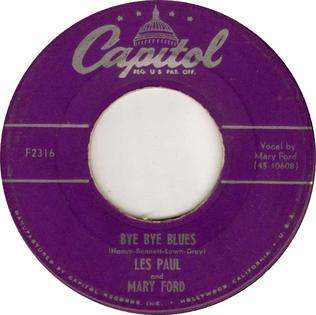
"Bye Bye Blues" is a popular and jazz standard written by Fred Hamm, Dave Bennett, Bert Lown, and Chauncey Gray and published in 1925.
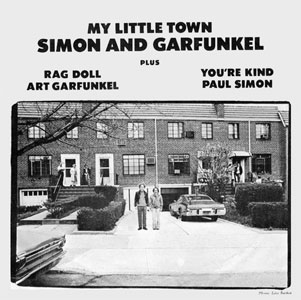
"My Little Town" is a 1975 song by the American duo Simon & Garfunkel. It was written by Paul Simon, who produced the track along with Art Garfunkel and Phil Ramone. The song was included on the 1975 solo releases from both Simon and Garfunkel (Breakaway). It would not appear on any of the duo's albums until the 1997 anthology box set Old Friends and the 1999 compilation album The Best of Simon and Garfunkel. It was the first single release credited to the duo since the 1972 release of "America", released in conjunction with Simon and Garfunkel's Greatest Hits.
"I Need You Now" is a popular song written by Al Jacobs and Jimmie Crane.

"Look Wot You Dun" is a song by the British rock band Slade, released in 1972 as a non-album single. The song was written by lead vocalist Noddy Holder, bassist Jim Lea and drummer Don Powell, and produced by Chas Chandler. It reached No. 4 in the UK, remaining in the charts for ten weeks. The song would be included on the band's 1973 compilation album Sladest.

"Song in Blue" is a 1955 song co-written by Les Paul and recorded by Les Paul and Mary Ford. The song was released as a single.
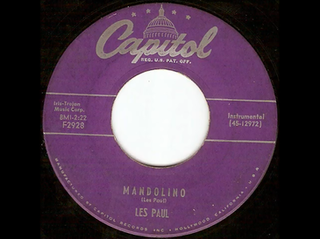
"Mandolino" is a 1954 instrumental composed and recorded by guitarist Les Paul. The instrumental was released as a single.

"Suspicion" is a 1948 song co-written by Les Paul and recorded by Les Paul with Fos Carling. The song was released as a single.
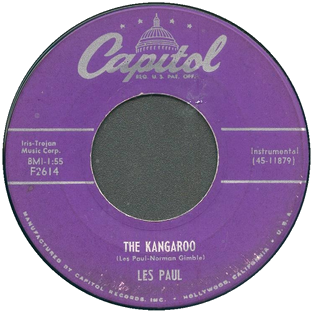
"The Kangaroo" is a 1953 instrumental written and recorded by Les Paul and released as a single.
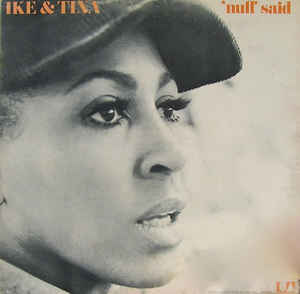
'Nuff Said is a studio album by R&B duo Ike & Tina Turner released on United Artist Records in 1971.

















